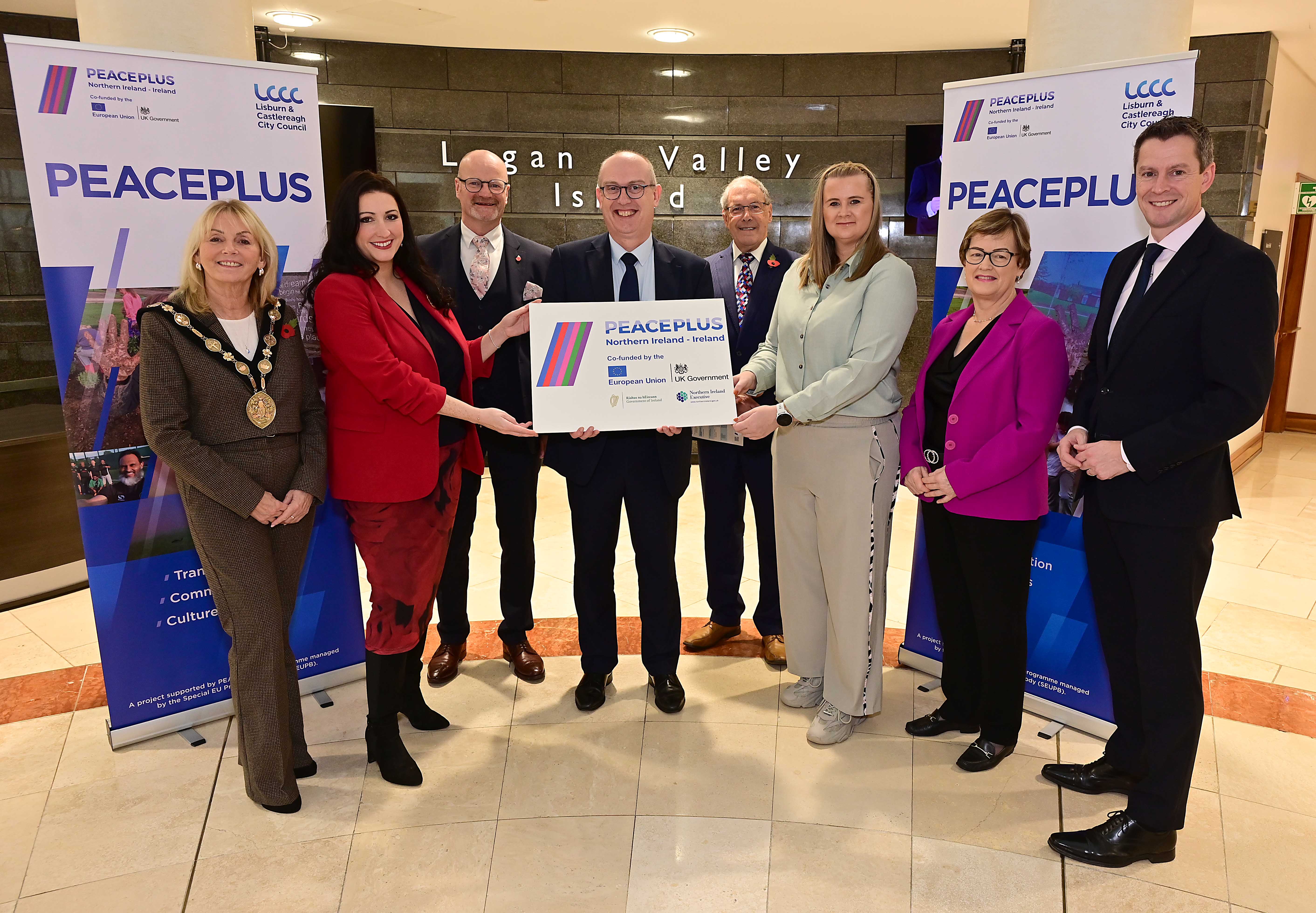On Wednesday 5th November the Lisburn & Castlereagh PEACEPLUS Partnership launched its £3.8m worth of funding under the PEACEPLUS Programme.
Through partnership working this funding will support local projects and initiatives to promote positive inclusive relations. It will enable the delivery of 21 projects across the council area on the PEACEPLUS themes of:
1. Community Regeneration & Transformation
2. Thriving & Peaceful Communities
3. Celebrating Cultures & Diversity
Deputy First Minister Emma Little-Pengelly said: “The Lisburn & Castlereagh City Council PEACEPLUS Action Plan is a great example of what can be achieved when everyone works together. The plan, which has local people at the very heart of it, will change lives as it addresses those issues which matter most.
“The projects focus on building trust, resilience, hope and aspiration, all of which are essential if we are to build that brighter future we all want to see.”
Junior Minister Aisling Reilly said: “This Local Action Plan is a roadmap for a brighter, more inclusive future. A future where every individual, regardless of background or circumstance, can contribute to and benefit from a peaceful and prosperous society.
“By promoting peace, understanding, and shared opportunities, we can create a brighter future for everyone. Well done to Lisburn and Castlereagh Council and all those involved in driving positive change for their diverse communities.”
The Minister for Rural and Community Development and the Gaeltacht, Dara Calleary TD, and Minister of State with Responsibility for Community Development and Charities, Jerry Buttimer TD welcomed the launch:
Minister Calleary said: “I would like to express my heartfelt gratitude to everyone who contributed to the creation of the PEACEPLUS Co-Designed Local Action Plan for Lisburn and Castlereagh City Council.
"It brings me great satisfaction that my Department of Rural and Community Development and the Gaeltacht, in partnership with the Special EU Programmes Body and the Executive Office in Northern Ireland, will provide support for this outstanding action plan”.
Minister Buttimer added: “I have no doubt that the 21 community relations projects which are funded by this plan, will significantly contribute to the long-term peacebuilding initiatives in Lisburn and Castlereagh, along with the surrounding regions. The effective implementation of this plan will provide lasting benefits for the area”.
SEUPB Chief Executive Gina McIntyre said: “The Co-Designed Local Community Action Plans investment area is a cornerstone of PEACEPLUS. It empowers local authorities to work hand-in-hand with their communities to design and deliver programmes that reflect local needs and aspirations.
“The Lisburn and Castlereagh plan is a testament to the power of co-creation. It demonstrates what can be achieved when councils, community groups, and citizens come together with a shared vision and a commitment to positive change.
"I want to commend Lisburn and Castlereagh City Council for their leadership and dedication in developing this plan and to acknowledge the seven project partners whose contributions will be vital to the action plan’s success.”
Councillor Tim Mitchell, Communities and Wellbeing Chair, said: “This is indeed a welcome and exciting opportunity for our local groups and communities. We are confident that, with the full support of our funders and partners the roll out of the Local Action Plan will benefit the whole community.
“Our funders, our staff, the experienced and skilful PEACEPLUS Partnership and external providers will help promote and stimulate economic and social development in our council area. However, the key to success is of the engagement and participation from the wider Lisburn and Castlereagh community.”
The delivery of projects within the £3.8m will empower communities, promote inclusion and make a lasting contribution to peace within the Lisburn and Castlereagh, long after the funding ends.
Councillor Uel Mackin, Chair of the PEACEPLUS Partnership added: “Each of the projects will have direct impact where it is needed most, supporting cross-community interaction.
"They will range from developing new facilities and upgrading premises to allow for better and more accessible shared spaces and services, to those projects that span various activities including health & wellbeing, youth and generational work, sport, culture, skills & dialogue development.”
